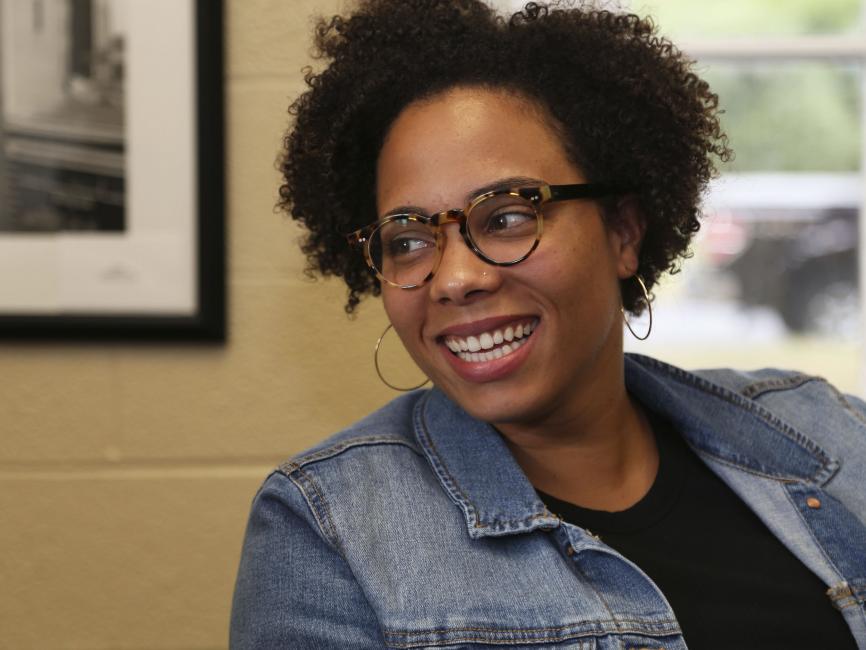 On Rhodes College Week: Parents have been substituting as teachers during the pandemic.
On Rhodes College Week: Parents have been substituting as teachers during the pandemic.
Aixa Marchand, assistant professor of psychology and educational studies, documents the challenges of this for essential workers and others.
Aixa Marchand is an assistant professor of psychology and educational studies at Rhodes College. Dr. Marchand graduated with a Ph.D. in education and psychology and a certificate in African American Studies from the University of Michigan in 2019. Her main research focuses on the attributions that Black parents make about educational inequities and how these attributions may relate to their school engagement. Other related research inquiries include illuminating how students and parents of color critically analyze school structures; elucidating how familial processes, such as familism and parent racial socialization, impact adolescents’ academic outcomes and socioemotional wellbeing; and the use and development of rigorous methodological tools to address societal inequities.
Parents and Virtual Learning During COVID-19
Because the COVID-19 pandemic has forced many students to learn from home this year, schools and teachers are relying on parents now more than ever to be their partners and co-teachers.
And while the switch to virtual and hybrid learning models in K12 schools has been confusing and tiring for educators and families everywhere, it has been especially difficult for parents who are essential workers, for those who have lost income due to the pandemic and for families who don’t have access to the resources necessary for virtual learning.
In a survey earlier this year of families in the Smokey City and Klondike areas, two historically Black neighborhoods in Memphis, 67% of respondents reported that they had lost jobs or income due to COVID-19. Many of those who are still employed are essential workers, and are unable to stay home and assist their children with virtual schooling.
In a separate survey earlier this year of families in Shelby County Schools, the public school district in Memphis, about 17% of respondents reported that they don’t have the devices and technology necessary for virtual learning and about 13% said they don’t have access to reliable wifi.
Better internet access and technology isn’t the only thing families need to be successful during this difficult time and unusual school year. But for many who lack these resources or the ability to dedicate their full attention to schoolwork, the switch to virtual and hybrid learning is exacerbating existing racial and wealth gaps. Students without reliable internet access and appropriate devices will remain stagnant, while their peers who are able to log in to school virtually will continue to make academic progress.
These circumstances – which have highlighted the importance of parents as valued partners and co-teachers – have also underscored the barriers so many of them face when it comes to involvement and engagement in their child’s education.

Comments
5 responses to “Aixa Marchand, Rhodes College – Parents and Virtual Learning During COVID-19”